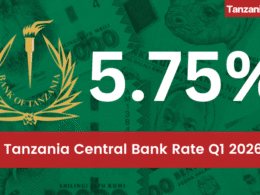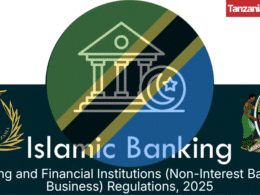By Eutropia Vegula, Head of Human Capital at Stanbic Bank Tanzania.
Recent data from the Ministry of Industry, Trade, and Investment cites that Tanzania’s burgeoning population comprises a workforce of 25.8 million people out of which 8 million are situated in Dar es Salaam and other rapidly growing urban areas.
According to the National Bureau of Statistics, the annual population growth is 1.6 million people and is projected to reach 77.5 million people by 2030, with at least 50 percent of the population under 18 years of age.
With the forecasted youth bulge, it becomes imperative for investments to be made in the area of education as a pillar that is critical to the transformation of the economy into a middle-income country as underscored in the Second Five Year Development Plan (FYDPII).
In order to develop the human capital of the rising population, tailored programs in entrepreneurship, vocational training and general courses on upskilling will help young people diversify their employment options.
Similarly, focused internships and graduate trainee programs provide young people with exposure and experience at the beginning of their careers.
As young professionals enter the world of employment, it is vital for companies to envision and create a path for employees to grow their jobs into careers.
When companies strategically invest in their workforce, they build a robust culture that progresses and empowers the growth of its people resulting in compounded transformative benefits to the business and economy at large.
On the job training and up-skilling programs, are some of the initiatives corporate companies are investing in to ensure employees are well rounded from a professional and personal development perspective.
The banking sector is at the forefront of Tanzania’s growth and development, playing a key role in fostering the country’s industrialization ambitions.
This requires employees of financial institutions to have professional qualifications and training that is critical for a career in banking.
Stanbic Bank has a number of programs and opportunities for their employees that cut across disciplines and include mentorship for leadership positions to encourage high-level growth of its people.
Additionally, the bank’s pan African footprint spanning over 155 years in 20 countries on the continent and presence in other global key markets, provides local talent with the exposure through attachment to other markets’ ways of conducting business.
It also gives them the opportunity to strengthen their skills in key sectors that are forecasted to propel Tanzania’s growth.
These programs allow the banks’ employees to visualize a bigger picture for their careers that includes personal growth and an opportunity to play a part in the country’s development in various sectors such as education, transport, and Oil & Gas among others.
Financial institutions are a vital component in attaining the country’s economic aspirations and the capabilities of the workforce are the foundation of sustaining the envisioned achievements.
Continued investment in people will generate a critical mass of exceptional and talented employees to become leaders in the banking industry.
Human capital is, therefore, the key ingredient that will advance the country’s development ambitions to become a middle-income country by 2025.











